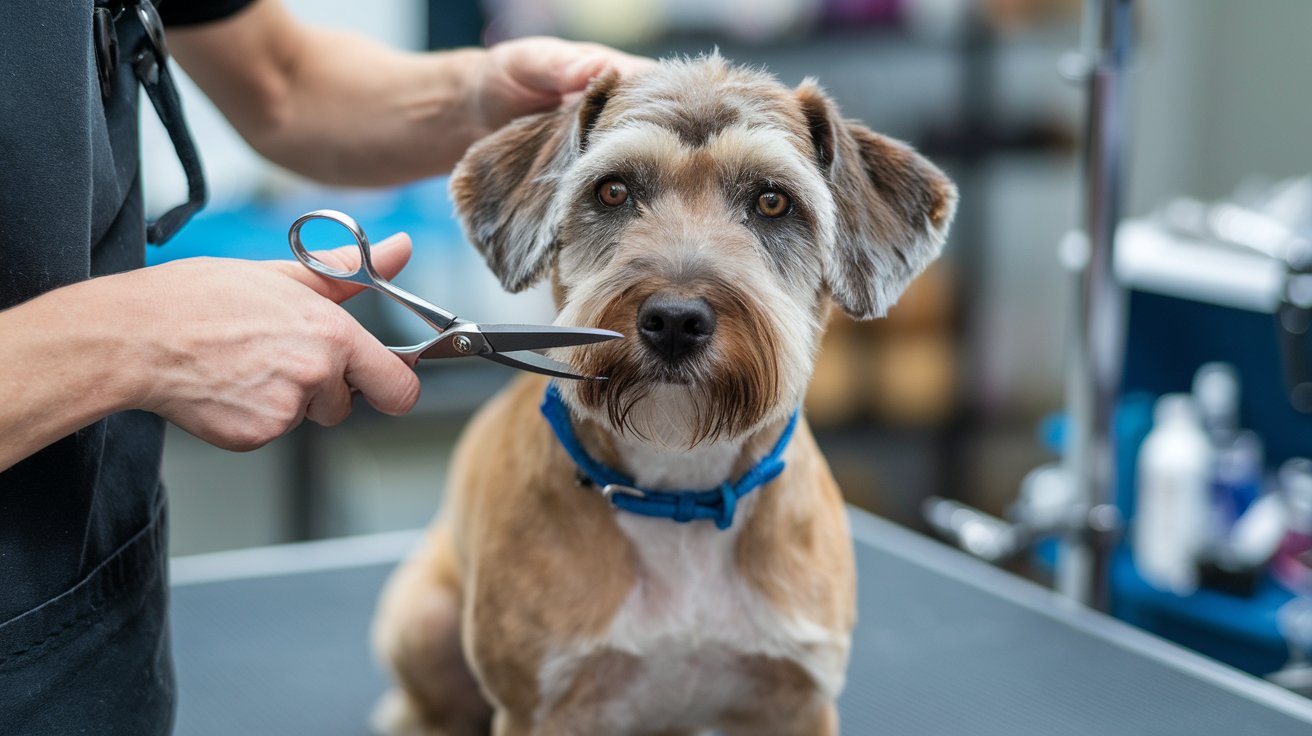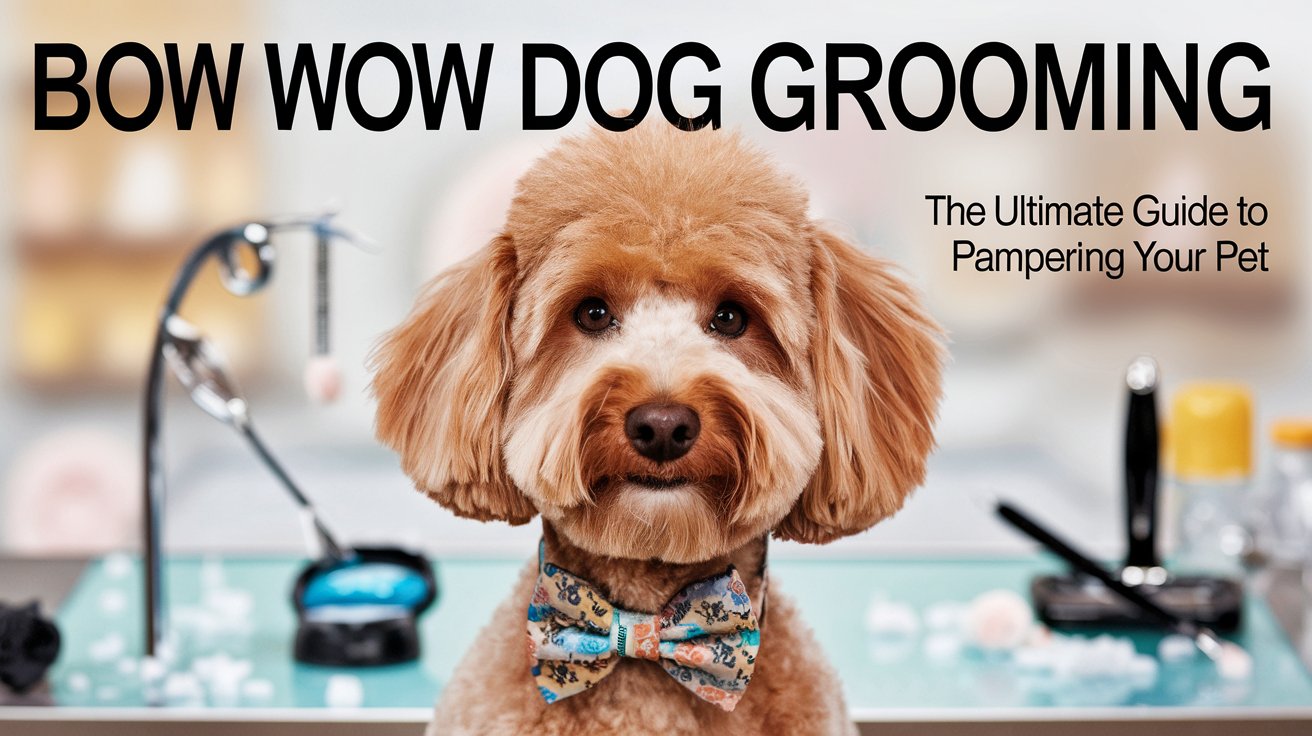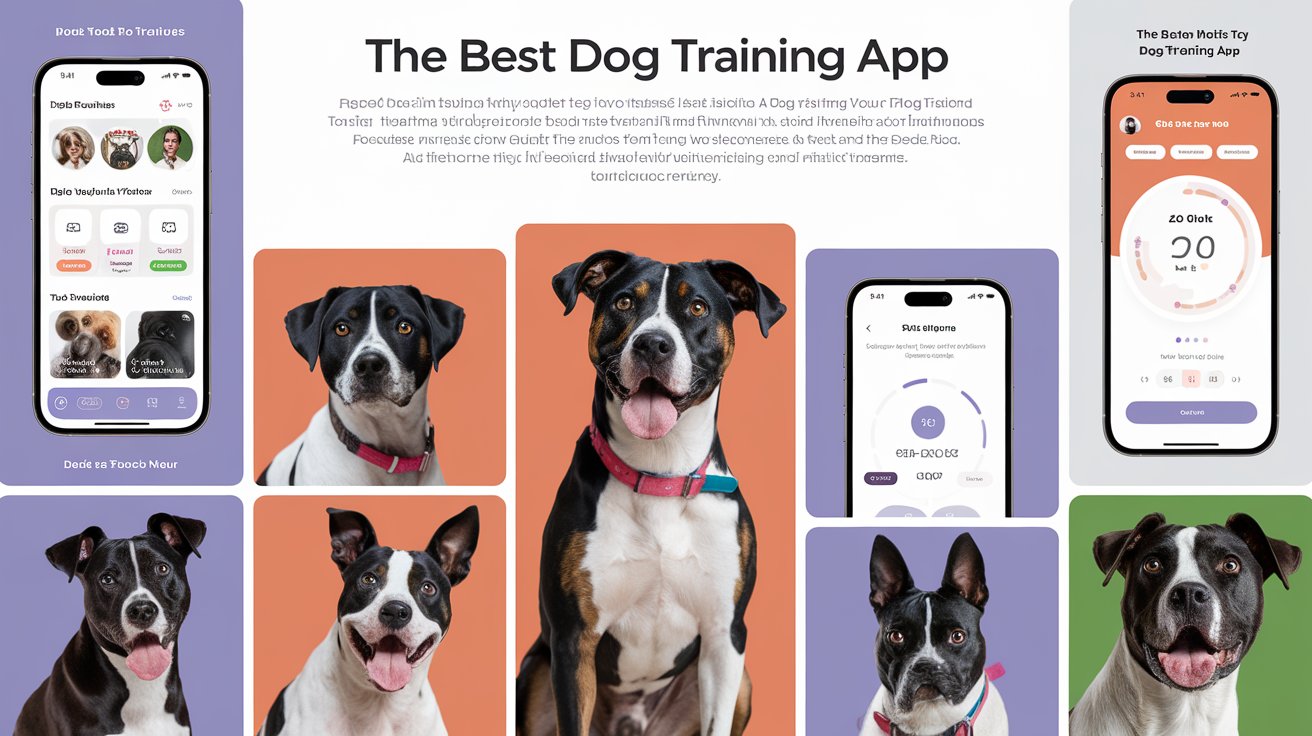Table of Contents
- Immediate Care After Neutering Surgery
- Essential Post-Surgery Supplies
- Dietary Guidelines
- Managing Activity Restrictions
- Signs of Complications to Monitor
- Long-Term Care Tips
- Conclusion
- FAQs About Caring for a Dog After Neutering
Neutering your dog is a responsible decision for pet health and population control. Caring for a dog after neutering, however, is crucial to ensure a smooth recovery and prevent complications. Caring for a dog after neutering is essential, as thousands of dogs undergo this routine procedure annually, but post-surgery care is often underestimated. In this article, we’ll delve into everything you need to know about caring for a dog after neutering to support your furry friend’s recovery process, backed by veterinary insights and real-world guidance.
Immediate Care After Neutering Surgery
The first 24–48 hours are critical for healing. Follow these steps to kickstart your dog’s recovery:
- Keep the dog calm after returning home. Avoid excessive movement to prevent internal bleeding or stitches coming undone.
- Control the environment: Use a comfortable, quiet space and secure it to prevent jumping or collisions.
- Monitor the incision site for redness, swelling, or discharge. Use a clean cloth and mild soap if needed.
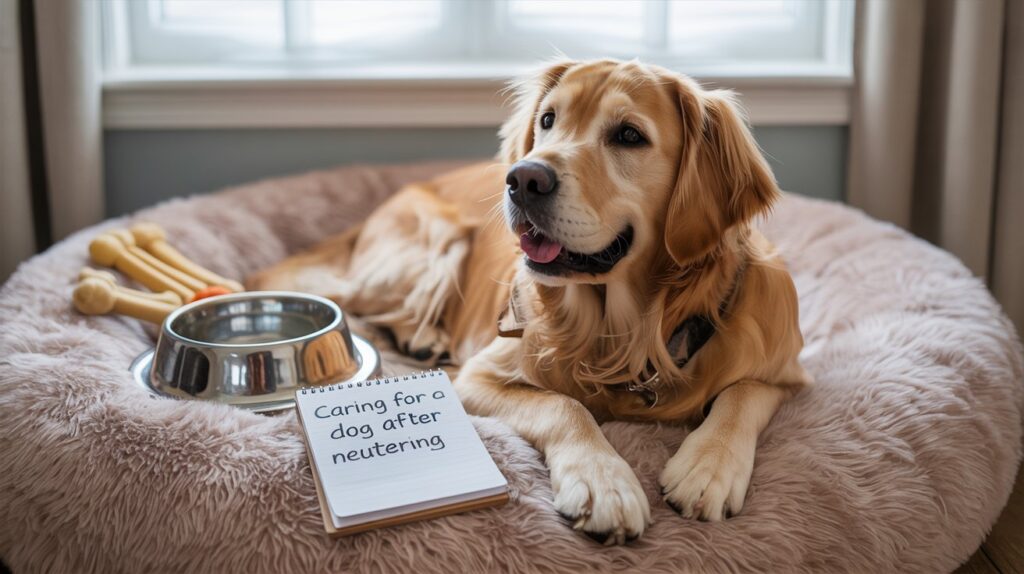
Essential Post-Surgery Supplies
Having the right tools ensures a stress-free recovery. Here’s what to prepare:
- E-collar (cone): Prevents your pup from licking the surgical area.
- Non-stick gauze pads for cleaning the incision without irritation.
- Pain or recovery supplements (only as prescribed by the vet).
- A cozy bed or puppy pad to minimize pressure on the surgery site.
Fact: Over 70% of dogs explore their incision area, risking reopening. An e-collar significantly reduces this risk.
Dietary Guidelines
Post-surgery digestion can be sensitive. Adjust their meals mindfully:
- Feed a bland diet (e.g., cooked chicken and rice) for the first 48 hours.
- Stick to smaller portions: Large meals can cause digestive stress.
- Follow vet recommendations for post-surgery diets, especially for obese dogs.
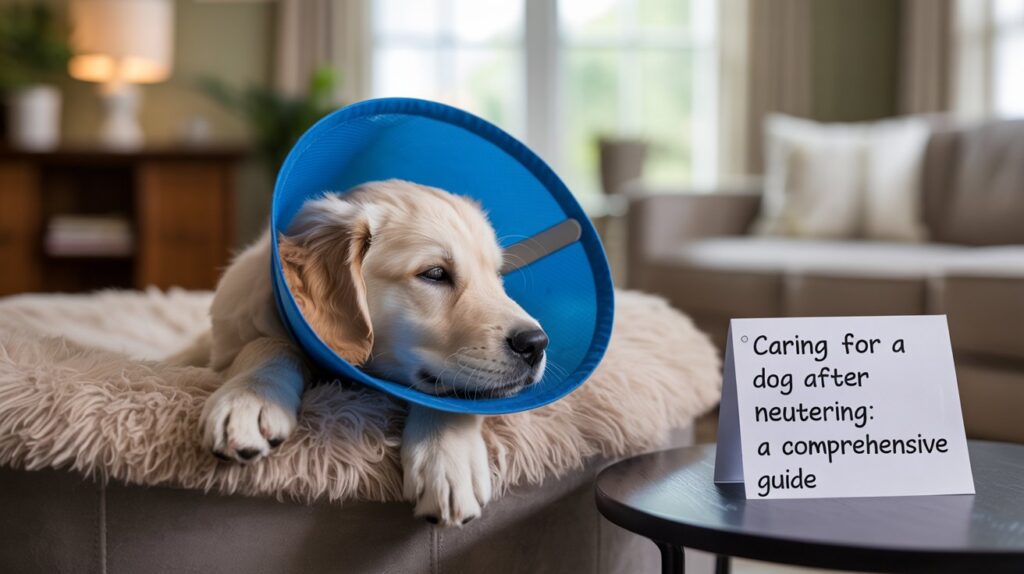
Managing Activity Restrictions
To ensure proper recovery, restrict activity to avoid complications:
- Limit leash walks to bathroom breaks for 7–10 days.
- Avoid stairs or uneven terrain for the first week. Use a pet stair climber if necessary.
- No playdates or high energy games until cleared by the vet.
Additionally, remember that caring for a dog after neutering involves monitoring their mood and behavior as they adjust. Caring for a dog after neutering also includes ensuring they maintain a balanced diet to support their recovery. Did You Know? Overexertion causes 15% of post-neuter complications, including wound splitting.
Signs of Complications to Monitor
While most dogs recover smoothly, watch for red flags:
- Persistent lethargy beyond 24 hours
- Fever (over 103°F) or labored breathing
- Infection symptoms: Pus, swelling, or foul odor from the incision
- Loss of appetite for more than a day
Call your vet immediately if these arise.
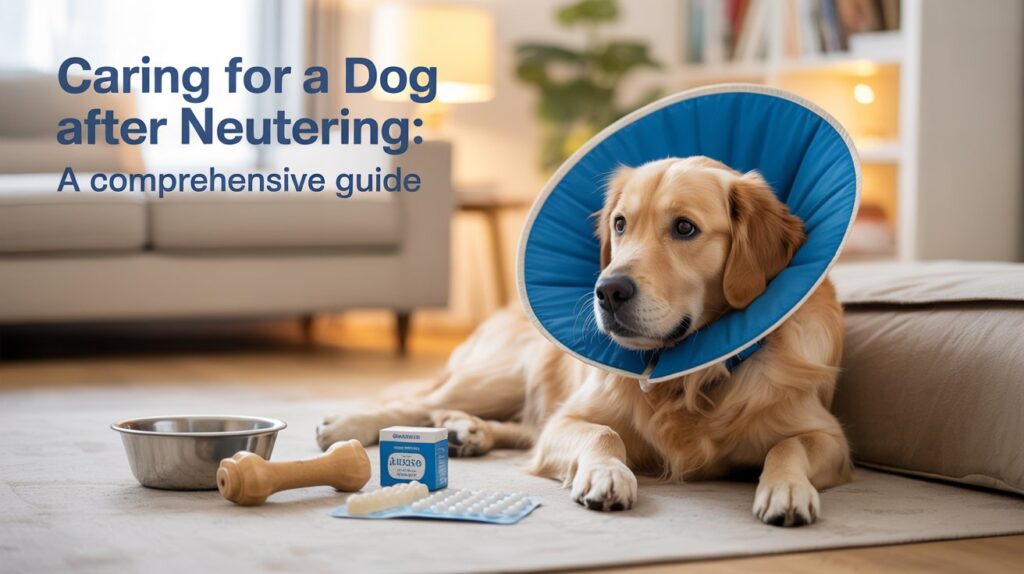
Long-Term Care Tips
Long-term recovery means gradual reintegration into normal life:
- Resume normal walks after 10–14 days.
- Avoid baths until fully healed (typically two weeks post-op).
- Schedule follow-up check-ups for stitch removal (if applicable).
Effective caring for a dog after neutering means understanding their need for rest and minimal activity.
Pro Tip: Dogs heal faster in environments with minimal stress and consistent care routines.
Conclusion
Caring for a dog after neutering is a straightforward yet vital process. By focusing on rest, monitoring the incision, and adhering to vet guidelines, you can help your dog return to their usual self quickly. Remember that patience is key. While the procedure is routine, neglecting post-care increases risks like infections or prolonged recovery. By following this guide, you ensure your dog’s comfort and health—two pillars of long-term companionship.
Being attentive to signs of complications is crucial when caring for a dog after neutering.
FAQs About Caring for a Dog After Neutering
When can my dog play outside after neutering?
After 10–14 days of rest and vet approval, gradually reintroduce light play. Avoid rough activities until fully healed.
What signs indicate an allergic reaction post-surgery?
Swelling of the face, hives, or breathing difficulty require urgent vet attention within 24 hours.
Can I bathe my dog after neutering?
Avoid baths until stitches/staples are removed (10–14 days) unless directed otherwise by a vet.
How often should I check the incision site?
Inspect it 1–2 times daily. Look for redness, swelling, or abnormal fluids.
Can I give my dog painkillers without a vet’s advice?
No! Only use prescribed medications. Human OTC painkillers can cause poisoning.
Why does my dog whine after surgery?
Discomfort or confusion is common. Offer comfort verbally and ensure a safe, darkened space to reduce stress.
Long-term caring for a dog after neutering includes regular vet check-ups and behavioral observation. Ultimately, caring for a dog after neutering ensures a smooth transition back to their routine. Further, consider how caring for a dog after neutering impacts their long-term health and happiness. Frequently revisiting the topic of caring for a dog after neutering can strengthen your bond with them. Lastly, don’t forget that caring for a dog after neutering may require adjustments based on individual needs.


